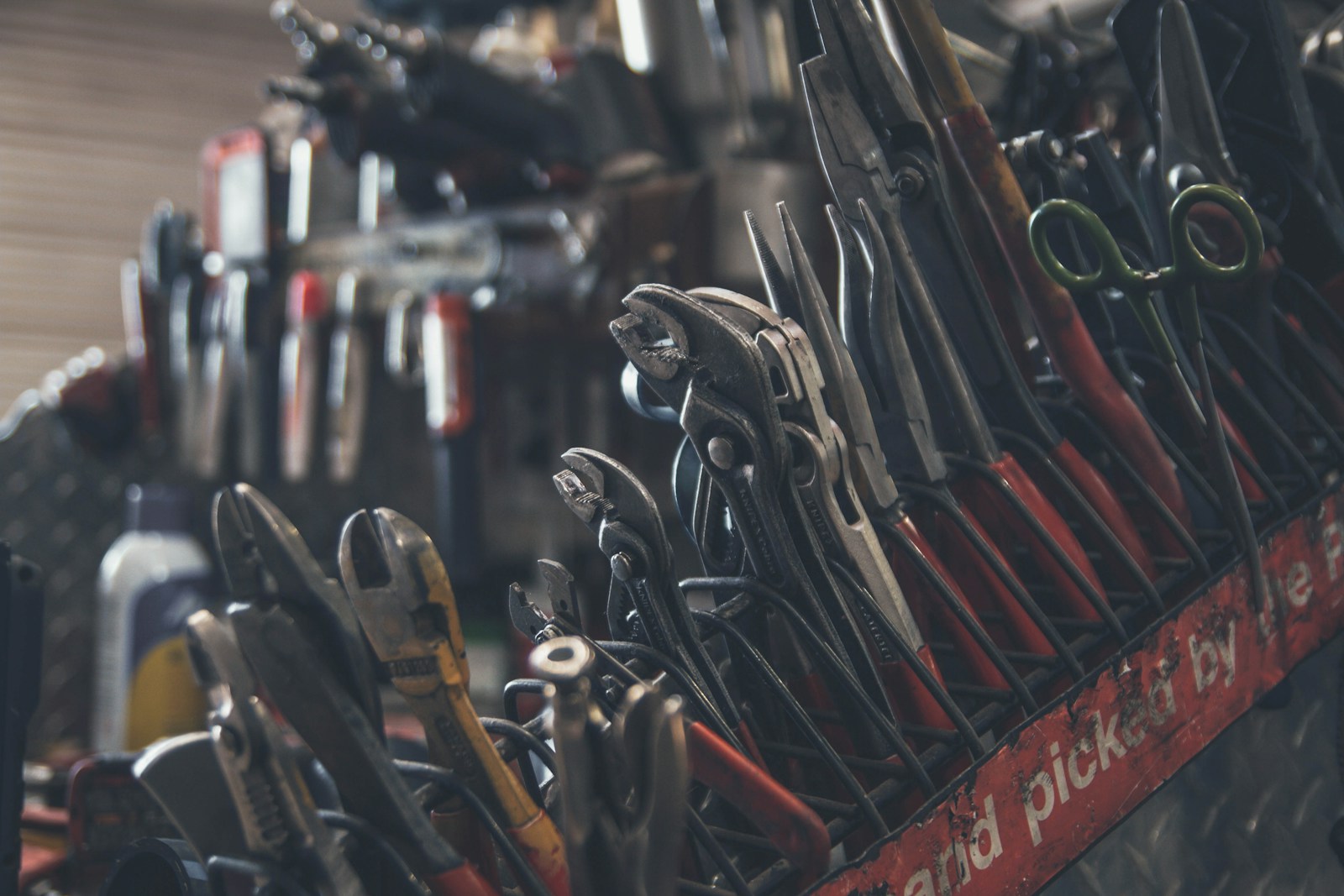By Rory Hale – REALTOR®, CIR Realty, Rural Properties & Acreages near Calgary
One thing I have learned living a rural life is a new appreciation for being prepared and self-reliant. In the city, we assume a lot; things are taken care of for us, often differently than we would have it done. When you live in the country, you have a lot more control, but also more responsibility. When a wind storm blows through, the city isn't coming to clear that tree off the road; you and your neighbours will take care of it. So you need the tools and equipment to do the job, and that is a real learning curve.
Equipment & Tools: What a Small Acreage Often Needs
To tackle your new responsibilities, you'll need the right tools. Your local hardware store might be a 30-km drive, so stock up on consumables like fluids, fasteners, and filters.
Tractor/Implements: Essential for snow clearing, moving heavy objects, and maintaining driveways. Starter budget: $5,000–$25,000+ for a used machine.
Quad/Side-by-Side: Great for getting around the property, towing small trailers, and hauling firewood. Budget: $5,000–$15,000+.
Generator: A necessity for power outages. Budget: $1,000–$5,000+.

Chainsaw + PPE: For clearing trees and cutting firewood. Budget: $500–$1,500 for a quality saw and safety gear.
Mowers/Brush Cutter: A powerful zero-turn mower is a must for large lawns. For tall grass and ditches, you'll need a brush cutter. Budget: $1,000–$10,000+.
Hand Tools, Fasteners & Fluids:** Keep a good supply of wrenches, screwdrivers, ratchets, bolts, screws, motor oil, and fuel stabilizers on hand.
You can never have enough good tools
Costs That Go Down… and Up
The "cheaper" myth is a tricky one. While some costs may decrease, others will certainly increase.
Potential Savings
Lower Municipal Taxes: Many rural municipalities often have lower tax rates than major cities. For example, a home assessed at $700,000 might have significantly lower taxes in the M.D. of Bighorn than in Calgary.
Grow Your Own: A greenhouse or a large garden can significantly cut down on your grocery bill.
Firewood: If you have a wood-burning stove or fireplace, you might be able to cut your own firewood (with the proper permits and permissions).
Co-ops: Many rural areas have equipment and time-sharing co-ops, allowing you to access expensive machinery without the full cost of ownership.
Time gained, running into town to do 5 errands now takes 30 mins rather than all day. Sure, there is only 1 or 2 registry offices, but a line of more than 2 people is rare, if not unheard of.
Likely Higher Costs
Fuel & Commute Wear: Longer commutes can mean more fuel consumption and faster wear on your vehicle.
Windshield & Tire Chips: Gravel roads can be tough on your vehicle. Expect to replace windshields and tires more often.
Self-Maintenance Time: Your time is a valuable resource. Time spent on a well check, septic pump-out, or clearing the driveway is time you aren't spending elsewhere.
➡️ Pro Tip: Factor time as a “cost” in your budget. It’s the most valuable thing you have.
Myth: “Location Is All That Matters”
You’ve found the perfect acreage, but there's a lot more to its "location" than just the view.
Vehicle Costs: Access via gravel versus paved roads will directly impact your vehicle's maintenance costs, tire life, and resale value.
Microclimates: Rural properties in the foothills have their own unique weather patterns. One area might be in a wind tunnel, while another in a valley might get more snow.
Note: Micro-climates are real, may property gets winter 2 weeks before the farms 5 km away.

Service Gaps: Don’t assume you’ll have a reliable Internet provider, a school bus route, or even a local fuel vendor. These are location-specific details you must verify.
Emergency Response Times: How far are you from the nearest fire hall or EMS station? In an emergency, every minute counts.
📝 Buyer Checklist: Location
Run address-specific ISP checks** before you write the offer.
Call the county office** and ask about the road class (gravel, paved, priority).
Map the nearest EMS station, fire hall, and grocery store.**
Ask local fuel vendors about their *delivery routes**.
Myth: “All Rural Land Is the Same”
Every piece of land is unique, and it’s critical to understand its specific rules and limitations.
Land Use Bylaws (LUBs): Your property is zoned, and that zoning dictates what you can build, where you can build it, and what you can use your property for. Can you run a home-based business? Can you have livestock? The [M.D. of Bighorn](https://www.mdbighorn.ca/263/Land-Use-Bylaw) and [Mountain View County](https://www.mountainviewcounty.com/p/planning-documents) have very different rules.
Environmental Constraints: Some land may have environmental setbacks, such as proximity to a floodway, creek, or wetland. These are legal constraints that can prevent you from building in certain areas.
Well & Septic Siting: The location of your well and septic system is governed by a strict set of rules. You can't just put them anywhere. It's important to know where your systems are and if the land is suitable for a new system, if needed. Talk with licensed professionals.
📝 Buyer Checklist: Land & Bylaws
Pull the *Land Use Bylaw** for the property’s district and confirm its permitted and discretionary uses.
Talk to the *county’s Planning & Development department** about your specific plans.
Get a *septic/well feasibility opinion** from a contractor before waiving conditions.
Who Thrives on an Acreage? (And Why It’s Still Worth It)
The people who thrive on an acreage are the ones who embrace the trade-off. You’re trading swipe-and-call convenience for competence and community. You’re trading city lights for stargazing, and the sounds of traffic for the call of a coyote. You're trading a perfectly manicured lawn for the satisfaction of a job well done. You’re gaining space, privacy, and room for projects that are truly your own.
How I Help
My goal as your REALTOR® isn't just to help you find a property; it's to help you find the right property and go in prepared. My role is to be your guide through the intricacies of acreage life. I provide a customized acreage-readiness checklist, and I have a concierge list of local contractors, well inspectors, septic professionals, and rural internet providers to help you make informed decisions.
Thinking about an acreage in the foothills? I’ll help you find the right property—and go in prepared.
Buyer Condition Checklist
Before you waive your conditions, a savvy buyer will:
Have a certified professional complete a *septic inspection.
Have a licensed professional complete a *water well test and a potability test.
Verify *Internet Service Provider (ISP) availability and real-world speeds.
Confirm the *road classification and maintenance schedule with the municipality.
Get a *FireSmart home/property visit for a risk assessment.
Request a *Real Property Report (RPR) with a survey to confirm boundaries and fence locations.
Review the *Land Use Bylaw (LUB) to ensure the property’s uses align with your plans. Talk to the county if you're unsure.

Acreage Owner’s Seasonal To-Do Calendar
Spring (March-May):
Book a septic pump-out and inspection.
Test your well water.
Tackle spring cleaning and FireSmart tasks (pruning, cleaning debris, mowing).
Start up your equipment (mowers, quad, tractor).
Change the oil filters and fuel (mowers, quad, tractor).
Start planning that garden
Summer (June-August):
Maintain your garden and landscaping. Get planting early; we have a short growing season.
Start accumulating firewood for next season.
Perform any major landscaping or building projects.
Take time to enjoy those longer days
End of summer, start your harvest.
Fall (September-November):
Winterize your equipment (drain fluids, store properly).
Mow the grass short for fire and pest prevention.
Check your exterior for any rodent or insect entry points.
More stocking up on firewood and fuel.
Test your backup generator,
Winterize your septic, and plug in your line heaters
Clean your chimney on your wood stove.
Winter (December-February):
Manage snow clearing for your driveway and walkways.
Monitor your water well and septic system for freezing.
Run your generator monthly to keep it in good working order.
Disclaimer
This blog post is for general informational purposes only and is not intended to be legal, financial, or tax advice. It is a guide to assist you in making an informed decision about purchasing a rural property in Alberta. For specific advice, consult with a legal, financial, or tax professional. All links provided are for informational purposes and are not an endorsement of any company or service.


